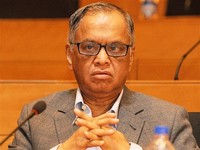Facts about Entrepreneur

Reich (1987) considered leadership, management ability, and team-building as essential qualities of an entrepreneur.

An entrepreneur is one who combines the land of one, labor of another, and the capital of yet another, and, thus, produces a product.

Schumpeter (1950) described an entrepreneur as a person who is willing and able to convert a new idea or invention into a successful innovation.

An entrepreneur is an agent who buys factors of production at certain prices in order to combine them into a product with a view to selling it at uncertain prices in the future.

An entrepreneur may be considered one who creates an opportunity rather than merely exploits it, though that distinction is difficult to make precise.

Entrepreneurial activities are substantially different depending on the type of organization that is being started, ranging in scale from solo projects (even involving the entrepreneur only part-time) to major undertakings creating many job opportunities.

Dhirubhai Ambani, Narayana Murthy, Azim Premji, and many more contributed to the Indian entrepreneur revolution.

An entrepreneur is a person who organizes and manages any enterprise, especially a business, usually with considerable initiative and risk.

Sociologist Max Weber saw entrepreneurial efforts as the result of the Protestant "work ethic," which was the idea that people sought to prove their value before God through hard work.

The entrepreneur may perceive that they are among the few to recognize or be able to solve a problem.

The entrepreneur, according to Knight (1967), is the economic functionary who undertakes such responsibility of uncertainty, which by its very nature cannot be insured, or capitalized, or salaried to.

The place of the disharmony-creating and idiosyncratic entrepreneur in traditional economic theory (which describes many efficiency-based ratios assuming uniform outputs) presents theoretic quandaries.